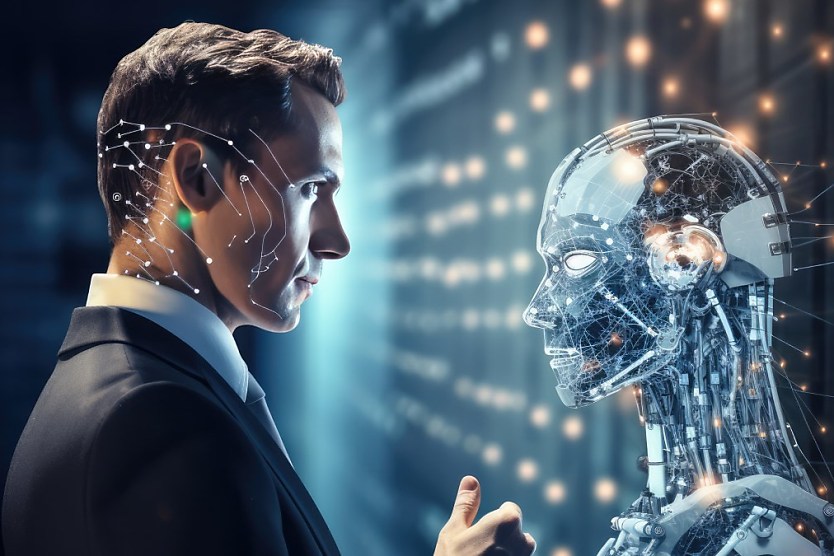What’s trending? The latest workplace talking points for 2024
SHARE THIS ARTICLE

There are a variety of trends shaping the current workforce. From AI to trust and employee experience, here’s how these aspects of business affect workplaces across the world.
Can AI really boost productivity?
Artificial intelligence (AI) capabilities are rapidly increasing, and it’s no secret that most businesses want to jump on the bandwagon and use it to boost productivity.
AI has become a standout topic in terms of workplace discourse, with many employees and employers already utilising surface-level AI software to assist them with their daily tasks. Because of its rapid growth and capabilities, more businesses are hoping that if they can implement systems for employee usage, productivity will get a boost.
According to the 2024 Global Talent Trends report by Mercer, 40 per cent of executives predict that AI will deliver gains of more than 30 per cent in terms of productivity. Yet three in five (58 per cent) believe tech is advancing faster than their firms can keep retraining workers, and less than half (47 per cent) believe they can meet this year’s demand with their current talent model.
Kate Bravery, Mercer’s global talent advisory leader and author of the study, believes that boosting productivity is a tag-team effort between both human and machine. “Raising productivity through AI is top of mind for executives, but the answer does not lie in technology alone. Greater workforce productivity requires intentional, human-centric work design,” she said.
“Leading companies recognise that AI is just part of the equation. They are taking a holistic view to address drains on productivity and deliver greater agility through new models of human-machine teaming.”
Keeping up with the ever-changing AI capabilities can be a challenge for workers, with 74 per cent of executives questioning their ability to constantly pivot to the new advancements that AI makes. Creating that healthy dynamic between human and machine could be a difficult endeavour for businesses and their employees.
Employee trust is at the bottom of the barrel at the moment
Trust in employers has had a massive decline since hitting all-time highs in 2022. Trust, for employees, has a crucial impact on business outcomes, with research showing that it has a major impact on energy, sense of thriving, and intent to stay at their company.
Nearly half of employees have stated that they want to be a part of an organisation that they can be proud of. Given that fair pay and development opportunities are key drivers for workers to reside at their company, employers are incentivised to make faster progress on pay equity, transparency, and equitable access to career opportunities in the year ahead.
Globally, employees are clear that a sense of belonging helps them thrive, but only 39 per cent of HR leaders said that women and people from minority communities are well represented in their organisation’s leadership groups, with just 18 per cent adding that recent DEI efforts have increased retention in these key groups.
Regaining employee trust in a time of challenges, such as skills shortages, is imperative for leaders to ensure that their business outcomes are successful in 2024. Greater attention around inclusion and meeting employees’ needs will help all employees thrive, thus regaining employee trust.
Employee experience is a top priority for organisations
Fifty-eight per cent of executives worry that their company is not doing enough to inspire workers to adopt new technologies. Two-thirds (67 per cent) of HR leaders shared concerns that they implemented new technology solutions without transforming work.
Employee experience has become a top priority for organisations this year. Its importance is self-explanatory, with thriving employees being 2.6 times more likely to say their employer designs work experiences that bring out their best.
HR department’s role in this aspect is crucial, but to achieve this, cohesion between HR and organisational leaders is imperative. Working in tandem, organisations have a far better chance of reaching these standards and employee expectations. Ninety-six per cent of companies are planning some HR functional redesign this year, focused on delivering across sectors and leading digital ways of working.
RELATED TERMS
An employee is a person who has signed a contract with a company to provide services in exchange for pay or benefits. Employees vary from other employees like contractors in that their employer has the legal authority to set their working conditions, hours, and working practises.
Kace O'Neill
Kace O'Neill is a Graduate Journalist for HR Leader. Kace studied Media Communications and Maori studies at the University of Otago, he has a passion for sports and storytelling.

